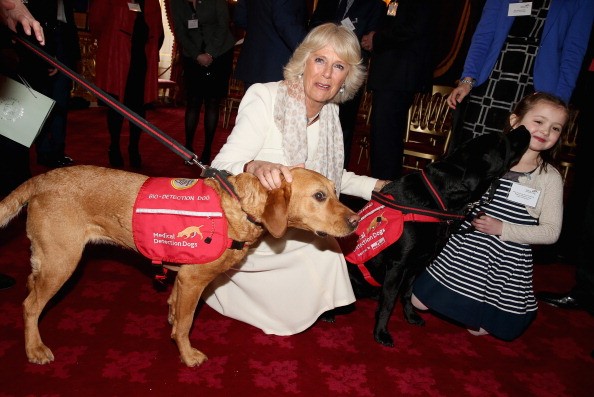
Dogs help humans is so many ways: companionship, tracking, guarding, helping find missing persons. Now they may start helping to detect cancer. The National Health Service of Great Britain has approved a trial for dogs to see if they are capable of sniffing out prostate cancer.
A dog's sense of smell is many orders of magnitude better than a human's. Dogs have can detect minute odors that have been shown to be associated with many cancers. These odors are thought to be due to volatile organic compounds that are produced by malignant cells.
A charity called Medical Detection Dogs was set up in the United Kingdom in 2008 to train dogs in detecting the changing scent that may accompany a developing cancer. Initial testing showed that trained dogs can detect prostate tumors in urine in 93% of cases. Medical Detection Dogs has received approval from Milton Keynes University Hospital for further clinical trials. The group says dogs undergo training for about 6 months, after which they can reliably identify urine with traces of cancer cells in it.
The dogs are trained through the use of a machine that holds eight urine samples. The dog makes the rounds of the machine and sniffs at the samples. When a dog detects the sample that contains cancer cells, it will either stop and sit down by it, bark, or lick the bottle to indicate it can smell the cancer. At first, the dogs are rewarded when they detect any urine scent, and then later they are rewarded only when they successfully identify cancer cells in urine samples.
Prostate cancer is the most common cancer in men in the UK, and the second most common cause of cancer death. The current test for prostate cancer involves analyzing a blood sample for PSA, a specific protein produced by the prostate gland. Increased levels of PSA could indicate prostate cancer and require a biopsy to be carried out. But the PSA test has a high false positive rate which causes many men to undergo an invasive procedure unnecessarily.
Dogs could provide a second-line cancer screening method that has a lower false positive rate and higher accuracy. And if dogs can be proved to be a reliable screening tool, a test could eventually be developed that would be superior to the PSA test.
While the current trials are focused on training dogs to accurately detect prostate cancer in urine samples, the dogs' unique sense of smell could make them a valuable resource for doctors in detecting many more diseases.

